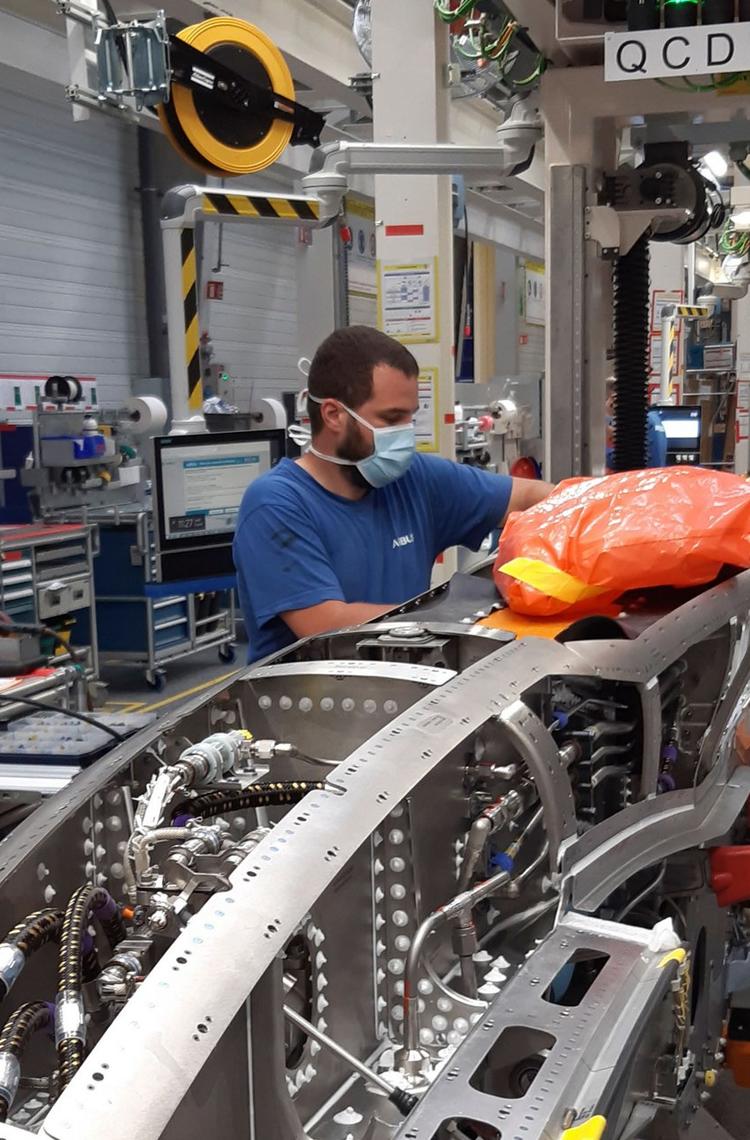Airbus’ response to COVID-19 involves a company mobilisation as unprecedented as the coronavirus itself: with 53 crisis management teams established around the world, and employees who are demonstrating an unwavering commitment to adapt, realign and reinvent as the situation evolves.
To understand the magnitude of this response, the number of “pop-up” coronavirus crisis management teams created across the Airbus businesses is 10-times that of any previous situation, according to Craig Morton, who has been with Airbus for 16 years and is directing – together with Andreas Hermann and the newly-arrived Claire Nurcombe – the COVID-19 Enterprise Crisis Management Team.
Extraordinary, motivated people
“We are extremely fortunate to have extraordinary people with a very strong sense of purpose and commitment,” Morton explained. “I am very sincere in saying that the can-do approach from everybody involved demonstrates Airbus values.” He takes this opportunity to send a word of thanks to them all for their dedication in supporting the company’s response.
There is a sense of motivation, mutual confidence, solidarity and complete trust among the crisis management teams now in action, which spans the full range of Airbus businesses, nationalities and locations around the globe.
- Craig Morton, Director of the COVID-19 Enterprise Crisis Management Team
In describing the business impact of a large-scale crisis such as the coronavirus, the Scottish Morton compares it to jumping into the North Sea in winter. “There’s initial shock from the freezing water: eventually you begin to recover and swim, but you need to get through that initial shock, confusion and even danger. Crisis management is there to support through those critical moments.”
Morton led the effort in activating and even establishing the Airbus crisis management teams where necessary, which was followed by real-time leadership on how to structure the response, establishing guidelines (particularly in preventing the virus’ spread), and providing assistance in managing the situation as it evolved.
Turning the focus to Airbus business continuity
Airbus’ focus is naturally turning to business continuity led by the functions, another key part of the company’s resilience. Using the North Sea comparison again, Morton said Airbus is “now back swimming in rough seas…and so we switch to support, looking out for further obstacles and helping to stay on course until calmer waters.”
Andreas Fehring, a group executive with more than 30 years of experience at Airbus in programme and operations management, has taken on the interface role between the crisis management teams and Airbus’ Executive Committee.
As liaison with the Executive Committee, I am able to bring individual subjects to the table, look for solutions, and quickly decide on assisting the crisis management teams around the world in taking measures to cope with the situation.
- Andreas Fehring, Airbus Group Executive
Fehring said the focus – first and foremost – has been on Airbus employees: ensuring their health and safety, while synchronising protection efforts across the company. As the situation began to stabilise, this expanded to implementing the business continuity actions, ensuring Airbus’ role as a key supplier to the air transport sector; defence, security and law enforcement customers; as well as in space operations.
“We also have a role to play in a larger scope: helping countries in which we live and work as a responsible corporate citizen,” he added. “This is the motivation behind such efforts as our airlift flights that are making millions of face masks available for health personnel and caregivers, along with the 3D production of visor frames for protective masks, and a consortium effort to produce medical ventilators.”
